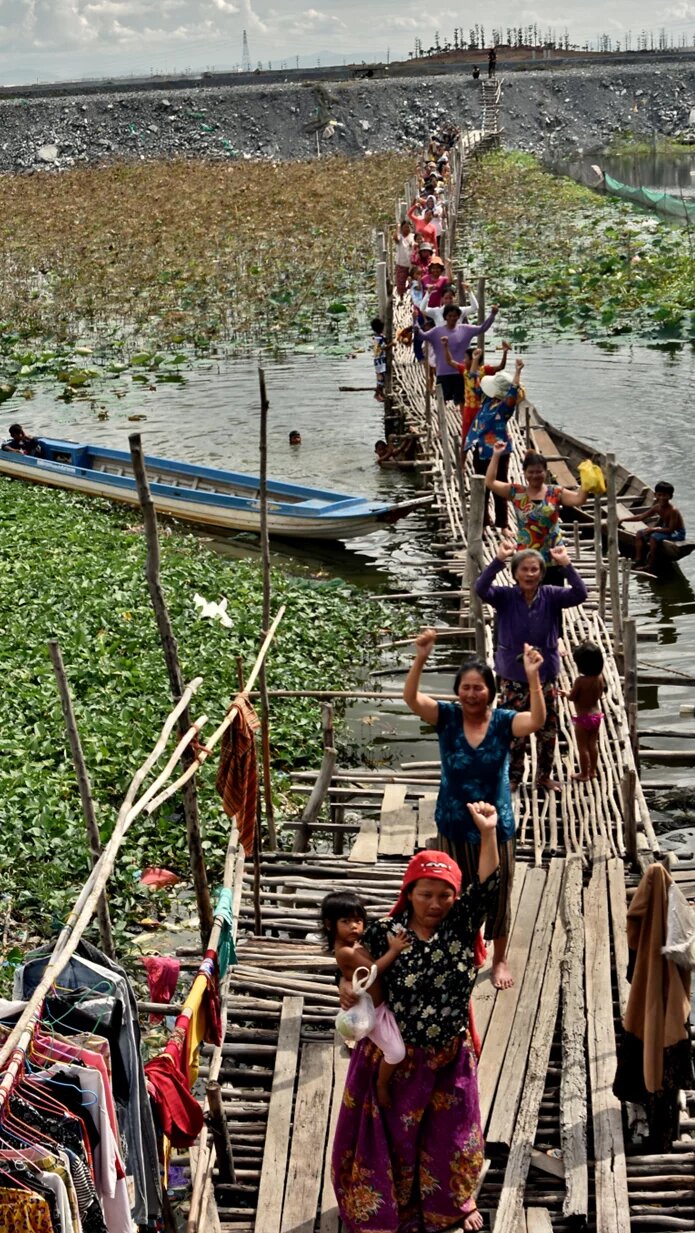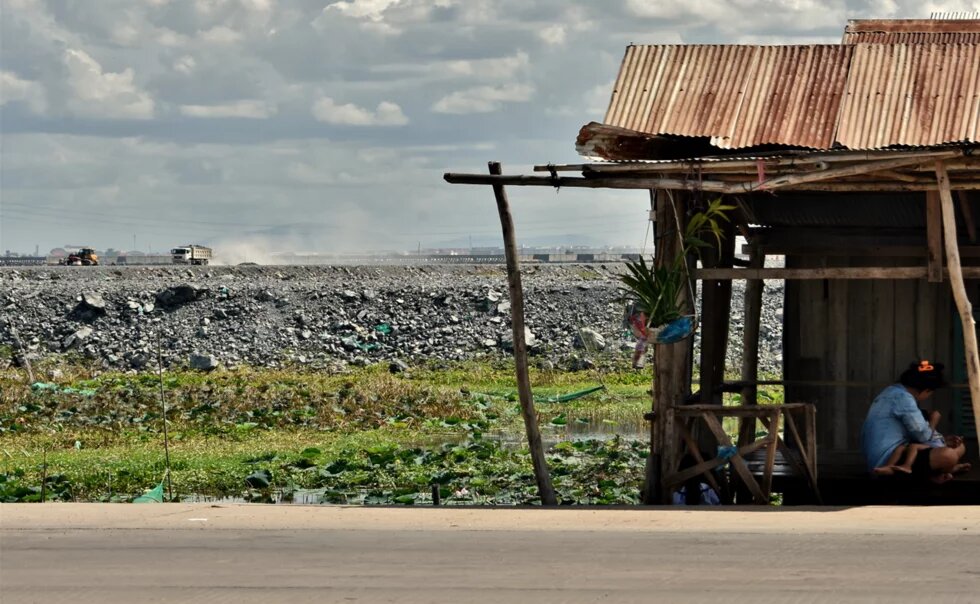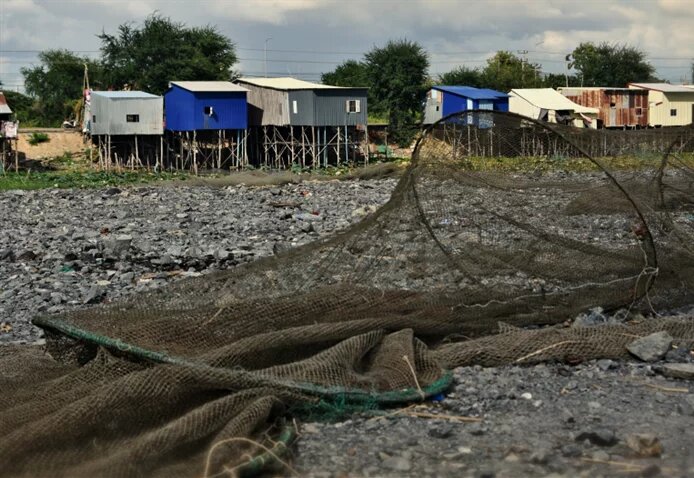
For the last three years, residents in northern Phnom Penh have seen a steady stream of construction trucks ferrying rubble into the waters of Boeung Tamok lake. After each truckload is dumped into the water and the cloud of dust settles, the lake they have lived next to for decades slowly disappears.

Boeng Tamok, also called Boeung Kobsrov, is the largest natural lake in the city and sits in the northwestern part of the city. The picturesque lake with masses of floating water hyacinth is home to around 300 families who live around it. Like most lake communities, Boeung Tamok supports the community of around 300 families by providing them the opportunity to fish or grow vegetables like morning glory and water mimosa.
The lake is also one of the last drains for rainwater, helping ease flooding during Monsoon season. But, after demarcating the lake’s boundaries in 2016, the government has issued more than 70 separate directives giving away the filled-in lake to well-connected individuals, businesspersons and government agencies.
Residents around Boeng Tamok are seeing their lake filled in like a jigsaw puzzle with few pieces left to fit in. This is an experience felt across the city at other lakes filled for development activity: Boeung Tumpun and Boeung Kak.
Sahmakum Teang Tnaut (STT) has meticulously documented the systematic dismantling of the lake by monitoring the around 74 government documents issued since 2018. The NGO also works closely with the community by giving them a platform to advocate for their housing rights.
The community is constantly navigating security concerns that stem from criminal charges filed against community members who have stood up against the destruction of their lakes, lives and livelihoods.
With no clearer way of saying it, community members say they only want to be included in the development of the city. “If they want to develop the area then they should also develop our community too.”
“We feel afraid because of all this development coming closer and closer to our home, and we don't know what will happen tomorrow,” says a community member who remains anonymous over security concerns.
The destruction of Boeng Tamok clearly illustrates the precarious position residents are put in when the state demarcates their land and community for development — often leaving them behind with nothing.
This article is an excerpt from "Profiles of Courage." Click here for the full reading.
